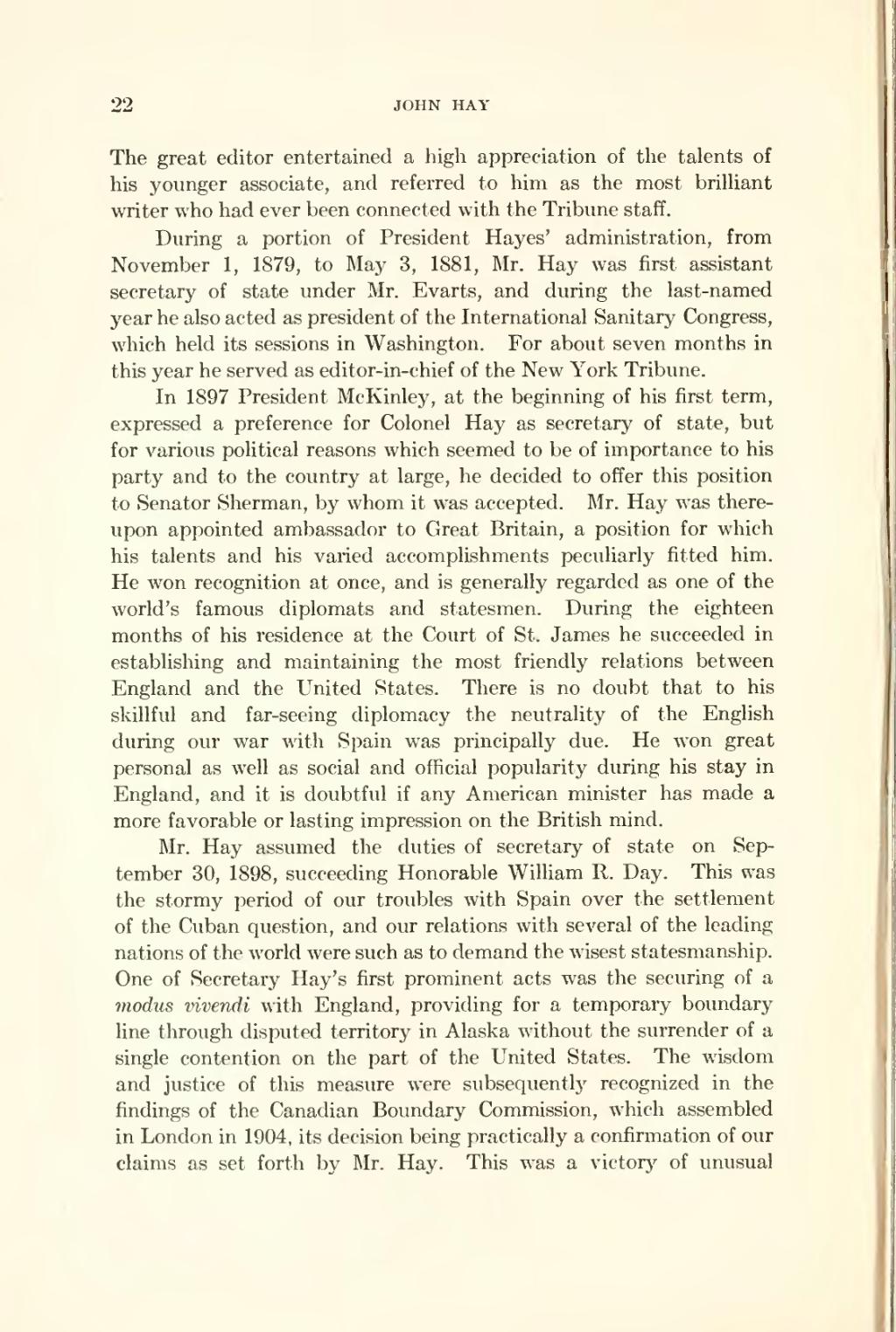The great editor entertained a high appreciation of the talents of his younger associate, and referred to him as the most brilliant writer who had ever been connected with the Tribune staff.
During a portion of President Hayes' administration, from November 1, 1879, to May 3, 1881, Mr. Hay was first assistant secretary of state under Mr. Evarts, and during the last-named year he also acted as president of the International Sanitary Congress, which held its sessions in Washington. For about seven months in this year he served as editor-in-chief of the New York Tribune.
In 1897 President McKinley, at the beginning of his first term, expressed a preference for Colonel Hay as secretary of state, but for various political reasons which seemed to be of importance to his party and to the country at large, he decided to offer this position to Senator Sherman, by whom it was accepted. Mr. Hay was thereupon appointed ambassador to Great Britain, a position for which his talents and his varied accomplishments peculiarly fitted him. He won recognition at once, and is generally regarded as one of the world's famous diplomats and statesmen. During the eighteen months of his residence at the Court of St. James he succeeded in establishing and maintaining the most friendly relations between England and the United States. There is no doubt that to his skillful and far-seeing diplomacy the neutrality of the English during our war with Spain was principally due. He won great personal as well as social and official popularity during his stay in England, and it is doubtful if any American minister has made a more favorable or lasting impression on the British mind.
Mr. Hay assumed the duties of secretary of state on September 30, 1898, succeeding Honorable William R. Day. This was the stormy period of our troubles with Spain over the settlement of the Cuban question, and our relations with several of the leading nations of the world were such as to demand the wisest statesmanship. One of Secretary Hay's first prominent acts was the securing of a modus Vivendi wdth England, providing for a temporary boundary line through disputed territory in Alaska without the surrender of a single contention on the part of the United States. The wisdom and justice of this measure were subsequently recognized in the findings of the Canadian Boundary Commission, which assembled in London in 1904, its decision being practically a confirmation of our claims as set forth by Mr. Hay. This was a victory of unusual
